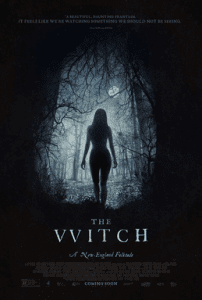This essay, “White Folks Need to Watch Black Panther,” is republished with permission from Rebecca Bratten Weiss’s blog Suspended in Her Jar.
I know the conversation about this movie, the first superhero movie ever not only to feature a Black hero but also to take place in a completely Black culture, must have a very special significance for people of color, beyond what white viewers can appreciate. But it’s an incredibly powerful experience for a non-Black viewer, also.
This is partially because the story is so well crafted. The characters aren’t flat or trope-ish, and the conflicts the hero faces are internal as well as external, with repercussions both for himself and for his people. In this respect, Black Panther is good classical epic, the story not only of a singular individual but of a cultural identity. And like most good classical epic, it crosses lines with the tragic genre, with implications of past choices creating potential destruction for the hero in the present.
What really struck me about Black Panther, though, was that I’d never before seen this kind of story played out with an almost entirely Black cast. Sure, I’d watched gangsta movies and comedies with mostly Black actors, in non-white settings, but these took place invariably in the kind of marginalized spaces to which people of color are relegated, in a white-dominant society.
As white people, we just take it for granted that we’re going to be the action heroes, the romantic leads, the beauty queens, the tragic brooding ones. We’ve established white western culture as the playground where stories happen. Fantasy and sci-fi, especially, have been almost exclusively white-person-dominant. And this is unfortunate, because fantasy and sci-fi are where we explore possibilities and different worlds, where we speculate about where we are heading. If all our exploration and possibilities and speculation keep us circumscribed within the range of white-dominant stories and terrains, we leave very little prospect for real social change on race issues, at least on the imaginative level.
But Black Panther reminds us that ultimately real social change on race issues can’t be led or dictated by white people, no matter how woke we are as allies. The story is very much about Black leaders navigating the thorny ethical issues of how to deal with white global supremacy, how to use their own power for justice. So Black identity and the issues we face in America today are central to the story, while at the same time the story doesn’t reduce Black identity simply to these issues.
Just as I’ve been reiterating that men can’t define women or solve women’s issues for us, so also we white people should step back from white-savior narratives and definitions of the terms of racial justice. Watching, and being moved by, stories told by and about Black heroes is a good way for us to participate in the process without presuming to be the ones who dominate the tale-telling.
This is important because we’re so used to being the point of the story. We love racial justice stories when we get to swoop in and save everyone, but a lot of white folks get uncomfortable when conversations about race issues don’t let us be the leads. I think this white-centrism is one reason why so many people who are personally committed to being non-racist end up still opposing movements like Black Lives Matter: because we want ending racism to be all about us. Because it gives us an excuse, we think, to avoid the uncomfortable reality of our own privilege, and the injustices on which it is based.
I’m not saying we have to shut up everywhere. As white allies, one thing we can do is try to get our own folks to listen to Black folks. Often Black activists are exhausted from having to do the work of explaining race issues to white people who think they – we – already have it figured out. Also, there are many spaces which are so white-dominant, Black voices never get heard. In those spaces, it’s common to hear polite racism presented in a “just sayin” sort of way. And it’s our moral obligation to oppose this.
Anyway, right now what I’m saying is, go see Black Panther.
Rebecca Bratten Weiss is a writer, editor, and freelance academic currently hiding in her bean patch because she can’t take it anymore. We will be joining her there shortly.

















